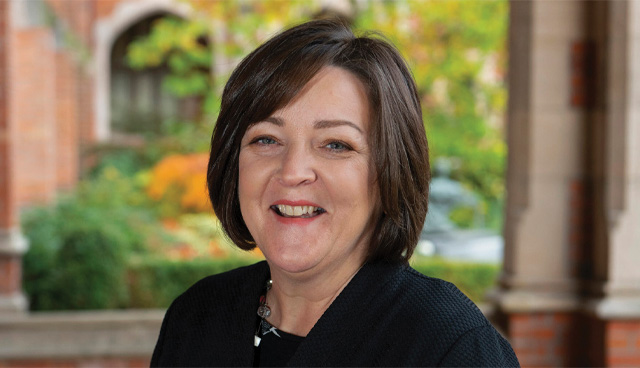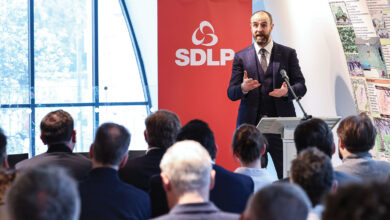A level and GCSE Results in 2020: This year it was (and still is) personal!

The spotlight shone on this year’s exam results process served to highlight the long-standing recognition of the influence of social factors on the qualification system outcomes, writes Jannette Elwood.
A level and AS results were initially released across the UK on 13 August. Over four days, we here in Northern Ireland heard and read many heart-wrenching stories from students who were badly affected by ‘the algorithm’ and who did not get the grades they were predicted by their teachers.
Then on 17 August, the Minister of Education, Peter Weir, like his counterpart in England, U-turned on the use of the official algorithm to assign grades to young people and allowed teachers’ assigned grades to stand. This meant that, in the end, many young people felt they got the grades they deserved; but many other had missed out on key opportunities afforded to them by proposed university places, apprenticeships or jobs.
Much of the outcry was because we didn’t have examinations this summer; young people were not given the opportunity to sit examinations and show what they know and understand. While many of us put undying faith in the reliability and validity of such examinations, they are not without inherent problems, how could they be? Too many social factors all interact with the outcomes achieved. Much effort goes into standardising examination outcomes and making results similar year-on-year but we know from research that examinations interact significantly with social inequalities such as gender, ethnicity or social class and even in the way in which young people are assessed. This has always been the case, it is just that this year, the adjustments that were made in the processes of awarding grades magnified these inherent inequalities which were, visibly and audibly, unacceptable to students on the receiving end of initially downgraded estimated grades. For young people this year was not about the system, it is about them, it was personal.
Teachers’ assessment decisions are also not neutral. Again, from research we know that teachers’ unconscious biases differentially impact in various ways. This year teachers were asked, in haste, to assign grades to each student based on past evidence and teachers’ estimates of what the student might achieve had they been able to sit the exam; but also they were asked to put students in rank order within those grades. While teachers undoubtedly did their best to be fair to all students in assigning grades, this unfamiliar activity of ranking within grade brought further bias into the revised system right from the start and thus posed major consequences for the validity of the estimated outcomes.
Statistical models were then used to moderate teacher judgements. These models included students’ prior attainment but also past performances of schools. This combination created the ‘troublesome storm’, the inequalities inherent in the estimates of teachers’ grades doubly impacted with the moderation processes that did not allow for any consideration of school improvement or students’ own individual endeavours to improve their results in final exams. While teacher assessments can be biased, so too can be the use of moderation and statistical models that are adjusted for past school performance. This year the double impact of teachers’ estimates grades and the moderation processes by awarding bodies brought social class inequalities to the fore, again as we saw, with major consequences for the validity of the outcomes.
For me, the most prevailing positive fall-out this year’s examinations debacle is the mobilisation of young peoples’ voices denouncing what they saw as an unjust system forced on them in haste and which fell short of the standards of fairness they demand from their qualifications systems. Any review of this summer’s examinations chaos should utilise their considerable energies to create assessment systems fit for their changing world. As we move into a post-Covid society we must seriously rethink our models of examinations and who is authoritative about what these might look like. Adults need to align with young people as equal stakeholders in decision making about the best way forward for our future examination systems here in Northern Ireland.
Professor Jannette Elwood is the Dean of Graduate Studies in the Faculty of Arts, Humanities and Social Sciences and Professor of Education in the School of Social Sciences Education and Social Work at Queen’s University Belfast.





